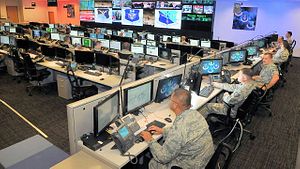U.S. Secretary of Defense Ash Carter unveiled the Pentagon’s new cyber strategy and made the case for greater collaboration between the government and the private sector during today’s speech in Silicon Valley.
In an address at Stanford University entitled “Rewiring the Pentagon: Charting a New Path on Innovation and Cybersecurity,” Carter began by calling for an “open partnership” between the commercial, civilian and government realms, including “rebuilding the bridge” between the Pentagon and Silicon Valley. The partnership, Carter said, was “the only way forward” given the massive proliferation of technology and the aggressive competition for global talent.
To set the stage for what such a partnership would look like, Carter then moved to expand on the Department of Defense’s (DOD) work in two areas, namely innovation and cybersecurity. The section on cybersecurity has been receiving the most attention over the past week, particularly since the speech was timed with the release of the Pentagon’s new cyber strategy. Carter said the DOD had three missions, namely defending its own networks against threats, defending the nation from severe threats abroad, and engaging in offensive cyber operations. The offensive dimension has been the one grabbing the headlines in recent days, since this is where a greater emphasis is perceived to lie relative to the prior strategy. In his remarks, Carter stressed that Washington’s preference for deterrence and defense should not be incorrectly interpreted by its adversaries as meaning that it was not prepared to go on the offense as well.
Carter outlined the five strategic goals in the new U.S, cyber strategy. These were to build and maintain ready forces and capabilities to conduct cyberspace operations; defend the DOD networks and data; defend the U.S. homeland and U.S. vital interests from disruptive or destructive cyberattacks of significant consequence; control conflict escalation and shape the conflict environment at all stages; and build and maintain robust international alliances and partnerships.
Though the Pentagon’s new cyber strategy and outreach to Silicon Valley are both not without their challenges, Carter seemed convinced that these could be overcome. In the question and answer session, Carter was asked how he would contend with bureaucratic obstacles between agencies that can sometimes hamper cooperation. “I’m not tolerating it,” Carter replied bluntly, noting that “we don’t have enough good people to build walls between them.” He emphasized that getting past obstacles like these required leadership at the top, and that he was providing this.
Some have also expressed skepticism as to whether the private and public sector can cooperate to the degree that Carter desires due to various differences including their cultures. Ahead of Carter’s address, Ben FitzGerald, director of the Center for a New American Security’s Technology and National Security Program, wrote that with Silicon Valley and technology companies now addressing global markets that dwarf the Pentagon’s budget, and complex and lengthy government acquisition practices and oversight requirements being viewed as significant opportunity costs, the benefits of this “open partnership” for Silicon Valley is much less clear.
When asked this very question, Carter noted that while he acknowledged the competitive environment, he was nonetheless convinced that many would still be drawn by both the interesting technical challenges that DOD faced as well as a sense of mission. But as Fitzgerald noted, in spite of all this, unlocking this potential will require “changes in mindset and process by both parties.” That is easier said than done, even if the Pentagon is headed by a defense secretary like Carter with a deep understanding of how Silicon Valley, the defense industry and the Pentagon work based on decades of experience.

































